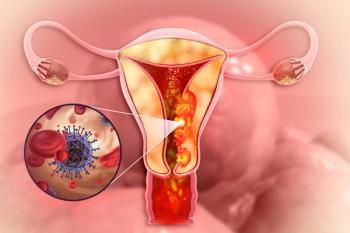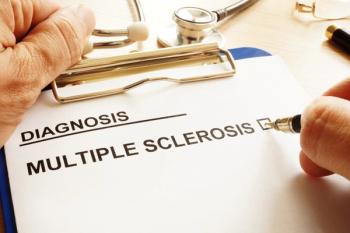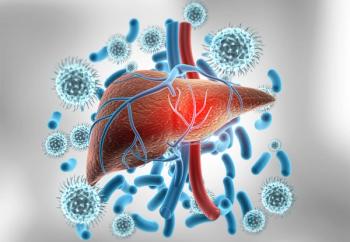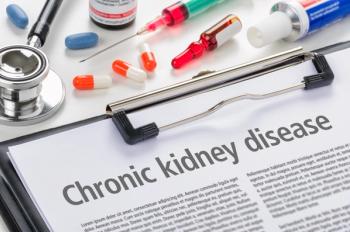
After gradually consuming increased doses of peanut butter, children who could initially tolerate about half a peanut could consume 3 tablespoons without an allergic reaction.

Gillian McGovern is an editor at Pharmacy Times®. She graduated from Rowan University in 2023 with a BA in Writing Arts and concentrations in Publishing & Writing for the Public, Technical & Professional Writing, and Creative Writing.

After gradually consuming increased doses of peanut butter, children who could initially tolerate about half a peanut could consume 3 tablespoons without an allergic reaction.

Through frequent interactions, pharmacists can discuss patients' treatment satisfaction, adherence issues, or potential adverse events.

This surgery can be significant in reducing the long-term risk of adverse outcomes and decompensation in cirrhosis related to metabolic dysfunction-associated steatohepatitis (MASH).

Currently, the Cadherin-6 targeting antibody-drug conjugate is undergoing evaluation in a phase 1a/1b clinical trial.

The approval follows the ECHELON-3 study, which enrolled adults with relapsed or refractory large B-cell lymphoma.

Reductions in cerebellar volume were associated with cognitive deficits and lower kidney function in those with CKD.

Supplements, such as Prevagen, as well as lifestyle and diet modifications can provide additional support to patients with Alzheimer disease.

If approved, brensocatib will be the first and only approved treatment for bronchiectasis and the first within a new class of medicines, called dipeptidyl peptidase 1 inhibitors.

The decision to end HYPERION (NCT04811092) comes after positive results from an interim analysis of the ZENITH trial (NCT04896008).

The authors are optimistic that this method can be replicated to identify other allergens that manifest into eosinophilic esophagitis (EoE).

In the phase 3 CONNEX clinical trial program, iclepertin did not meet its primary and secondary end points.

The indication is for patients with endometrial cancer who may benefit from treatment with ACR-368 (Acrivon Therapeutics).

These findings can lay the foundation for the development of machine learning models in chronic kidney disease (CKD) and kidney failure.

The prevention of preeclampsia may reduce severe maternal morbidity (SMM) risk in pregnant people.

Pregnant individuals with multiple sclerosis (MS) are more likely to experience mental illness both during their pregnancy and in the first years after giving birth.

Efruxifermin is undergoing 3 phase 3 clinical trials to evaluate its safety, efficacy, and tolerability in metabolic dysfunction-associated steatohepatitis (MASH).

Some risk factors for chronic kidney disease (CKD) in patients with lupus nephritis (LN) and systemic lupus erythematosus (SLE) were renal impairment, delayed diagnosis, and hypertension.

Three experts from UPMC Health Plan highlight the importance of treating patients’ physical, mental, and social health when managing diabetes, rather than the disease alone.

Health care professionals, particularly pharmacists, can recommend that patients take over-the-counter supplements, such as melatonin, to facilitate REM sleep.

The model also predicted prevalent cases of decompensated cirrhosis would more than triple, incident liver cancer cases would nearly double, and transplant almost quadruple.

Although there were increases in prescriptions during the studies’ durations, the proportion of anxiety or pain medications on the same day of intrauterine device (IUD) insertion procedures were low.

Statin use is not associated with a change in incident chronic kidney disease (CKD) and estimated glomerular filtration rate in adult patients aged 65 and older.

Additionally, the authors observe that childhood-onset epilepsy is associated with an earlier age at the onset of amyloidosis.

The authors note that transferrin saturation levels may be a modifiable risk factor of chronic kidney disease (CKD) progression and all-cause mortality.

The authors note that this may cause disruptions in the metabolic stability of lipid processing and storage, impacting the liver and accelerating damaging adaptative responses.

Despite these findings, navacaprant was generally well-tolerated and safe in patients with major depressive disorder.

Memantine/donepezil and everolimus are used to treat dementia of the Alzheimer type and tuberous sclerosis complex-associated subependymal giant cell astrocytoma, respectively.

The study shows benefits when Hecolin (HEV 239; Xiamen Innovax Biotech Co Ltd) is administered in 2 doses, rather than the typical 3-dose regimen.

Black and Native American patients were about 2 to 3 times more likely to die of cancer compared with White patients, and women younger than 50 years were affected more than male patients.

The study found that internalizing and externalizing factors, brain maturation, and decreasing volumes of brain regions were linked to eating disorders.